Moisture, pests, and the elements can wear down your tent prematurely resulting in costly repairs or replacements. Here is a guide of simple tent care tips to ensure you get maximum use out of your gear and save some cash over the long run.
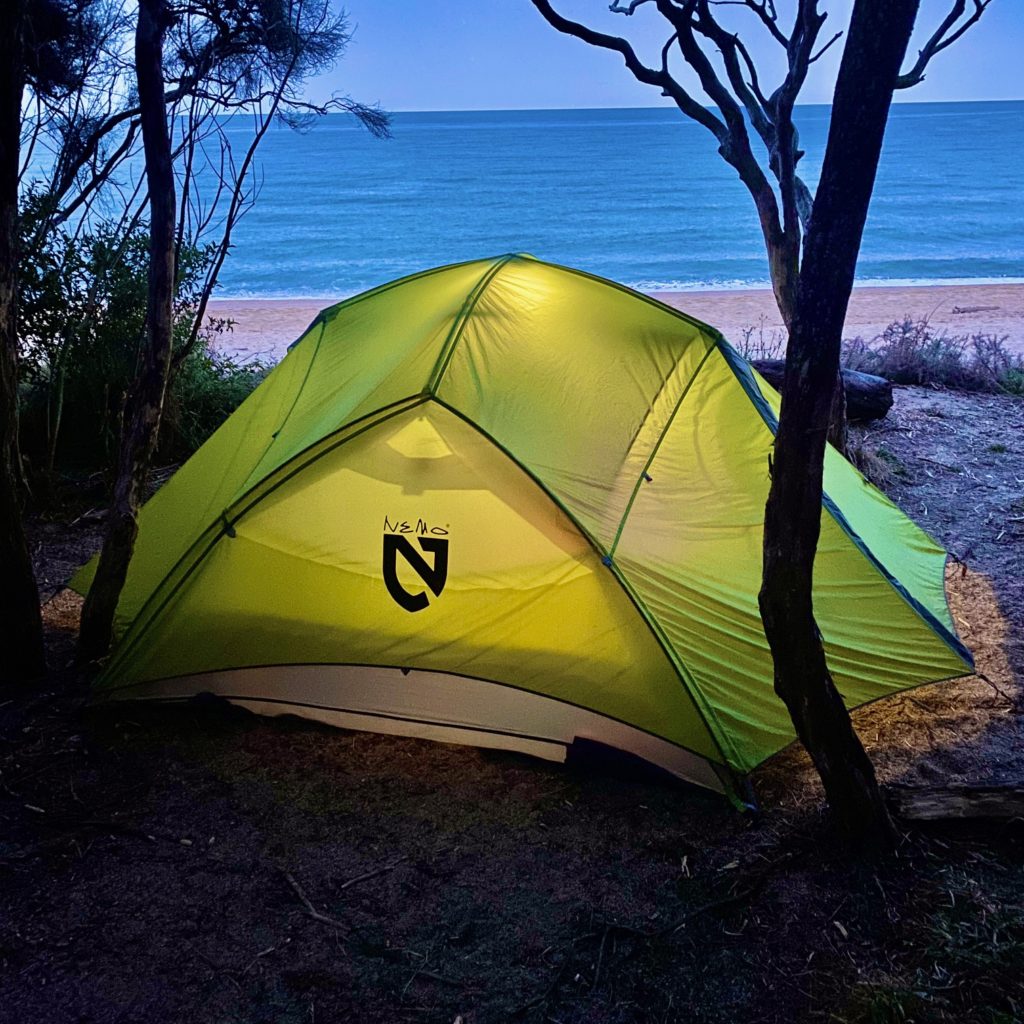
Pick a Good Campsite:
Firstly, picking where you set up your tent is key. An established campsite will likely have less debris and sharp objects that can damage your tent. If you are in the backcountry, make sure you clear any sticks or rocks that may damage the fabric. A footprint for your tent is also helpful in protecting your tent.
The footprint is simply tarp-like material that adds a layer of protection between the tent and the ground. While it may seem counterintuitive, the footprint should be smaller than the base of the tent. If the footprint is larger, it will only serve to collect more dirt and moisture around base of the tent.
Another thing to keep in mind is that you want to find a campsite that is level. Even a slight incline may cause problems; you will likely wake up in the middle of the night smushed up against the lowest part of the tent. Lastly, try to find a campsite that provides some shade. The sun’s UV rays break down the protective coating on your tent.
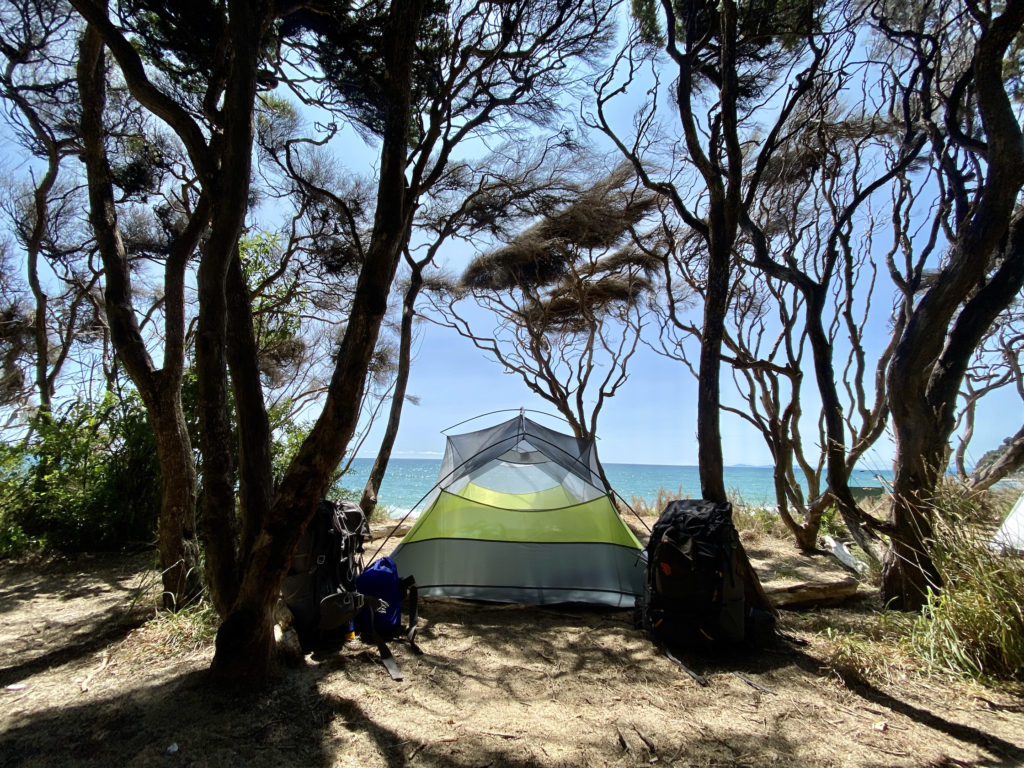
Condensation is another consideration when picking a campsite. Condensation is caused when warm and humid air meets cooler air. Think of how a cold glass of water gets condensation on the outside of the glass on a hot and humid day. The air inside your tent will likely be warmer and more humid than the outside air which causes water to condense on your tent.
If you are able to find a campsite under a tree, the shade and extra shelter from the tree can help prevent condensation. Just make sure there are no damaged tree limbs above that may be ready to fall! There is only so much you can do to prevent condensation from forming. Moisture can lead to mold and mildew so be sure to dry out your tent and rainfly as soon as possible after a trip.
Use:
Once you’ve found a good campsite it’s time to set up the tent. Be gentle while setting up the polls and don’t aggressively tension the tent material or rainfly. Be careful with the tent zippers while you enter and exit; the delicate tent material can easily snag. If you notice that the zippers seem to get stuck frequently, you should apply zipper lubricant. Always take off your boots or shoes when entering the tent. You don’t want to tear the flooring or carry in more dirt and debris.
On that note, don’t use the tent as a dog kennel. You are only asking for your pup to claw or chew their way out of the tent. Lastly, be mindful of what you store inside the tent. Mice and other rodents have been known to chew through tents to get to a tasty snack. Just to be safe, keep all food in the tent vestibule or hang it with some p-cord from a tree.
Clean:
Even if you are careful with the tent you will inevitably carry some dirt inside the tent. Before you deconstruct the tent, take out the tent stakes and tip the tent to the side to shake out any dirt inside- this is more helpful with a camping buddy. Once you are back home, you can spot clean any soiled areas with cold water and a gentle non-detergent soap. Don’t throw the tent in the washing machine. The agitator in the machine is hard on the delicate fabric; it’s best to hand wash in a tub if you feel that the entire tent needs to be cleaned.
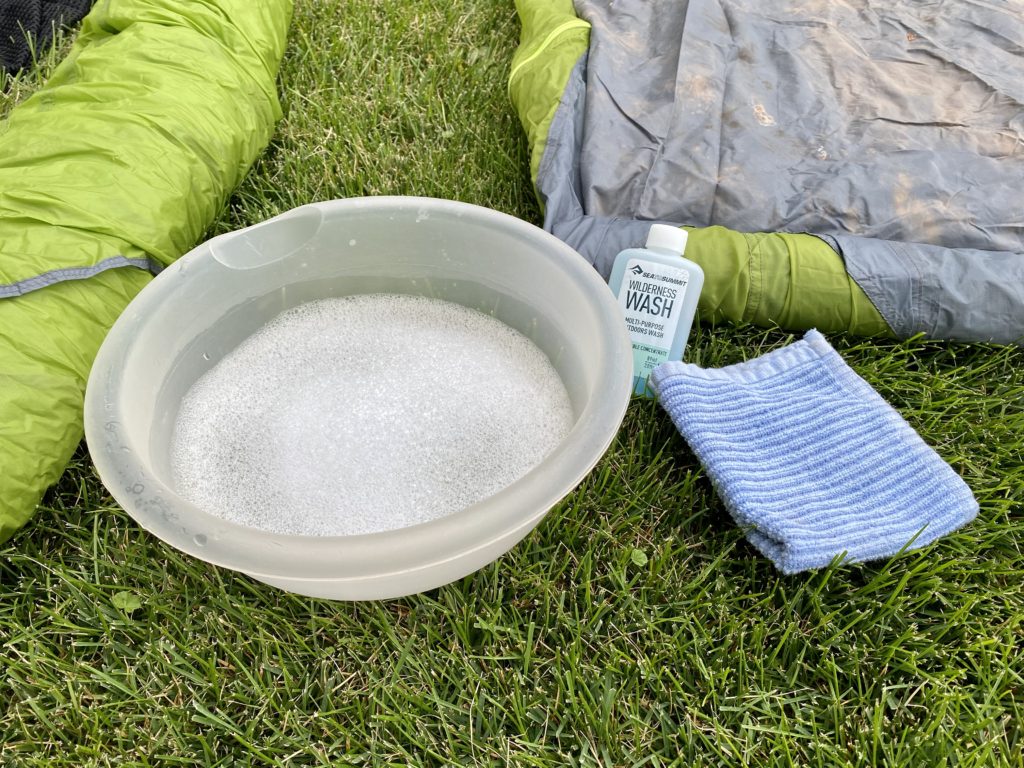
Store:
After cleaning the tent, make sure that it is completely dry. Ideally you should dry the tent in a shady area with good air circulation. Mold and mildew love moisture so it is imperative that the tent is as dry as possible before storage. Once it is dry, roll the tent up loosely, don’t fold. Rolling is gentler on the tent’s protective coating.
I would recommend storing the tent loosely in a breathable bag, a pillowcase is a good option or your tent may have come with a storage bag. If you notice that the tent coating is starting to flake or if any repairs need to be made, now is a good time to do so. You don’t want any damage to worsen with repeated use. I have found that GEAR AID Tenacious Tape is great for repairing minor tears in our tent. They offer a clear tape and a variety of colors and is a more durable option than duct tape.
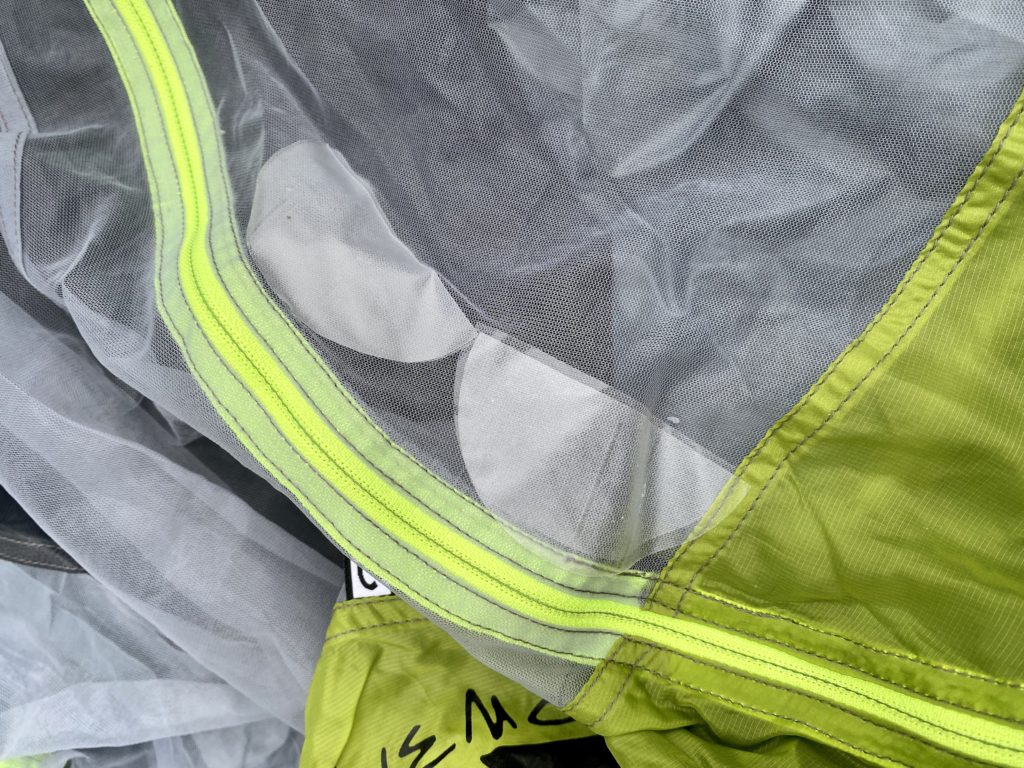
I hope this was a helpful post on how to prolong the life of your tent. If you have any other tips or ideas, please comment below!


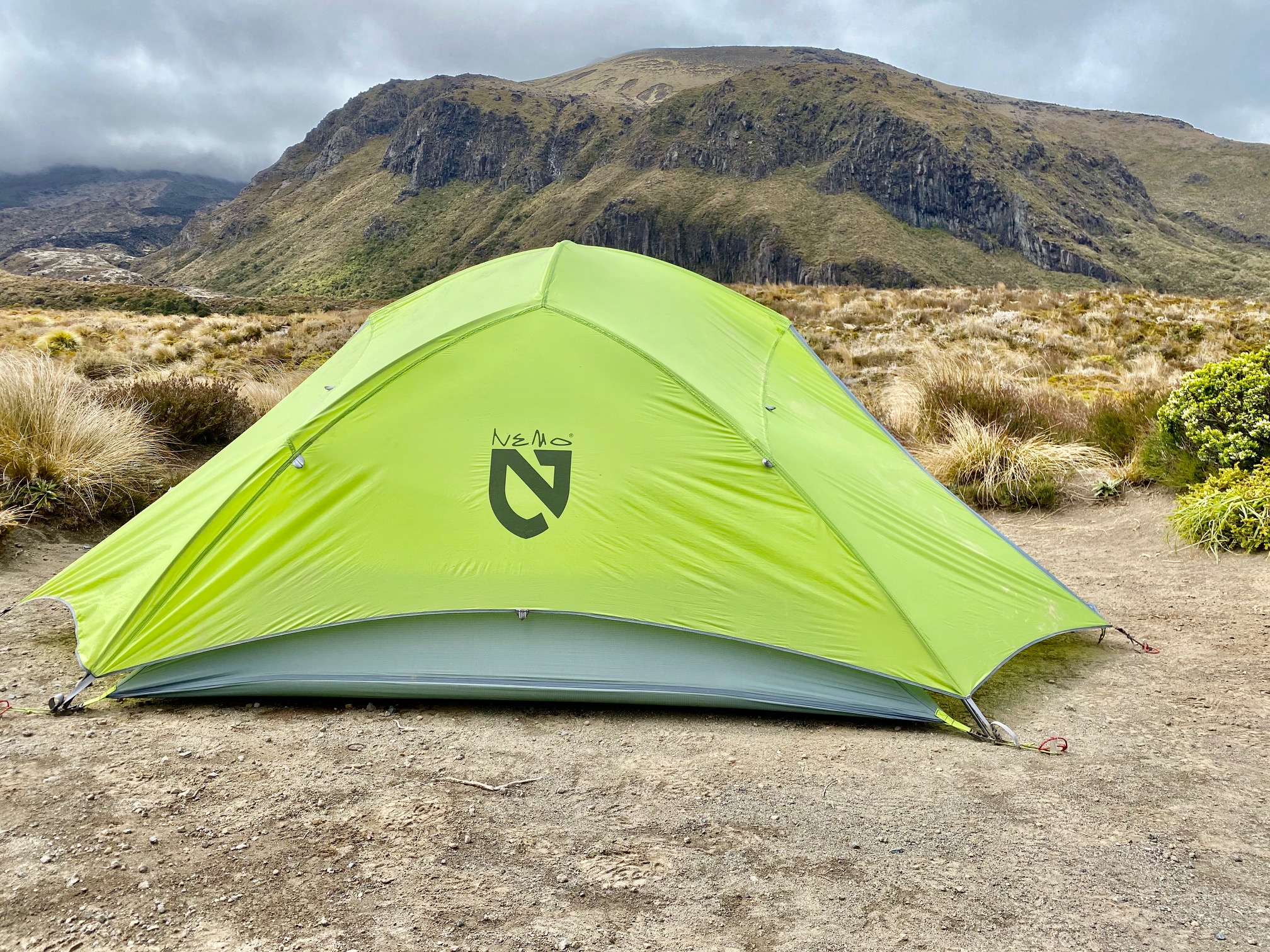





Leave a Comment